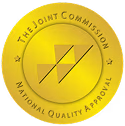Are you considering treatment options for substance abuse? Research says that those seeking a life of sobriety are far more successful with a 12-step program included in their treatment.
12-step programs for recovery are spiritual in nature and provide the foundation for sobriety and a guide to living a more fulfilling life.
The steps are the basis for the program, which will lead you to practices that will lead you to sobriety if addressed step by step.
If you want to learn more about how the 12-steps can help you on your road to recovery, read on to find out if this program is right for you.
The 12 Steps of Recovery
In most 12-step recovery programs, they refer to what is known as The Big Book, titled “Alcoholics Anonymous,” originally published in 1939. The book outlines the process of recovery from alcoholism through the following 12 steps:
- We admitted we were powerless over alcohol or drugs—that our lives had become unmanageable.
- Came to believe that a power greater than ourselves could restore us to sanity.
- Made a decision to turn our will and our lives over to the care of a higher power, as we understood it.
- Made a searching and fearless moral inventory of ourselves.
- Admitted to your higher power, to ourselves, and to another human being the exact nature of our wrongs.
- We’re entirely ready to have your higher power remove all these defects of character.
- Humbly asked your higher power to remove our shortcomings.
- Made a list of all persons we had harmed, and became willing to make amends to them all.
- Made direct amends to such people wherever possible, except when to do so would injure them or others.
- Continued to take personal inventory and when we were wrong promptly admitted it.
- Sought through prayer and meditation to improve our conscious contact with our higher power as we understood Him, praying only for knowledge of His will for us and the power to carry that out.
- Having had a spiritual awakening as the result of these steps, we tried to carry this message to alcoholics and addicts, and to practice these principles in all our affairs.
These steps intend to get to know yourself, open up to accepting help, and seek a connection to a power greater than yourself. They also help you establish ongoing efforts to change and build a fellowship or support system of people going through the same things.
7 Benefits of 12-Step Programs in Orange County
In our previously mentioned study, the patients who participated in a 12-step program not only stayed committed to their sobriety but created more fulfilling lives and strengthened familial relationships. There are many benefits to 12-step programs, including:
1. You Enter a Sober Community.
One of the greatest benefits of going to 12-step meetings is that you will join a community of already sober people or on the path to sobriety.
Having a strong network of support from others might be the biggest predictor for your own success in recovering from addictions.
Creating a new social group is one of the toughest parts of sobering up. Likely, your current friend group is still using - whether it's alcohol or drugs or both.
Attending 12-step meetings allows you to engage in a social environment with others who share your sobriety goals. They are also far better at relating to your challenges and are willing to help.
2. You Learn New Strategies for Sobriety
Part of the 12-step recovery model is that you help others in need. The meetings include people in all stages of the 12-steps.
You will meet newcomers who are getting through their first day sober, and you will meet those who have been in the program for over 25 years.
Everyone has the opportunity to speak and share their story in a meeting without judgment. Those who have more experience are likely to dish out some words of wisdom for the newcomers.
It is a space that inspires you to try some new tips and tricks for overcoming addiction.
3. You Create Meaningful Connections
One of the key elements that lead to success in the 12-step meeting process is the sense of connection with others. They say that it takes a village to provide the support needed to stay sober.
As part of the fellowship, you get the chance to know others who share your similar experiences, and they get to know you on a deeper level.
Cultivating relationships with those in recovery will give you a strong sense of connection and belonging.
4. Meetings Are Vital in Preventing Relapse
Attending meetings gives you a sense of purpose by being of service to others. It also gives you a sense of belonging. Both are important in the path to sobriety.
Many people who relapse often admit to neglecting meetings. It is important to choose a meeting, one that you will attend regularly.
Creating a routine and letting others know you at the meeting is essential to preventing relapse.
5. You Get Ongoing Support
Getting sober and resisting the urge to drink can be extremely difficult, particularly in the beginning stages of recovery.
Many of your old habits and routines are hard to break, and you might experience strong cravings. A 12-step program helps you navigate these urges and provides you with support from the other members.
As a member, you will have access to a sponsor who can give you ongoing support outside of the meeting times.
6. Meetings Are Accessible and Free
One of the biggest benefits of 12-step programs is just how easily accessible they are. They also don't cost you anything.
Most cities and towns have local 12-step programs. They are offered in different languages and can easily be incorporated into your weekly routine, and you don't have to worry about the cost.
The only thing that is required from you is the desire to stop drinking or using.
7. 12-Steps Stand the Test of Time
The 12-step recovery model was first created in the 1930s. It is still used today, and it has been introduced in programs for those addicted to drugs other than alcohol.
The program's design ensures that you are equipped with the tools to stay on track with your sobriety and commit yourself to lifelong recovery.
Taking the First Step Towards the 12 Steps
Taking the first step towards recovering from addictions can be scary and overwhelming. 12-step programs have many benefits and are designed to make you feel welcome and accepted, easing you on to the path to sobriety. For more guidance and addiction support, contact us to learn more about our Alcohol Rehab Anaheim, CA, and to discuss Orange County treatment options that suit you best.





.png)
